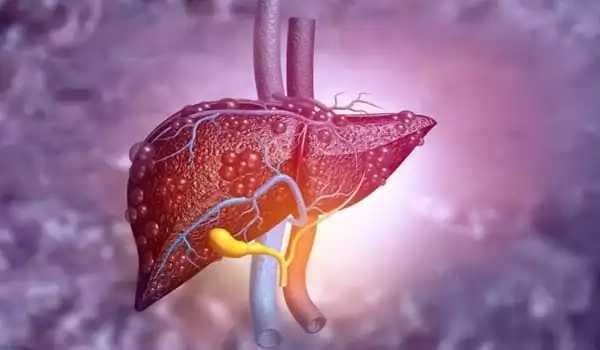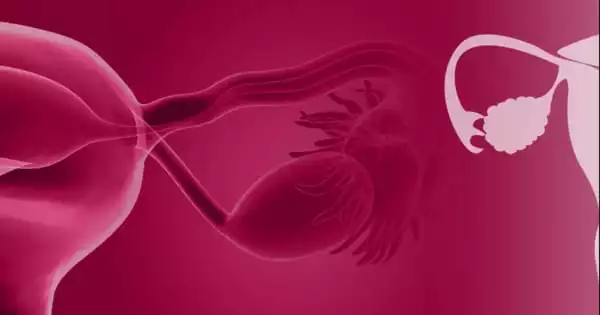Fat accumulates in the liver as a result of nonalcoholic fatty liver disease (NAFLD). A new study has revealed a link between irregular or extended periods and an increased risk of NAFLD. In the study, those who had irregular periods were also younger, had high blood pressure, diabetes, obesity, insulin resistance, and had high cholesterol and triglycerides.
Women who have long or irregular periods are known to have a higher risk of type 2 diabetes and heart disease, but according to a new study published in the Endocrine Society’s Journal of Clinical Endocrinology and Metabolism, these women may also be at risk for nonalcoholic fatty liver disease (NAFLD).
NAFLD, a chronic illness in which excess fat accumulates in the liver, affects approximately 24% of individuals in the United States. This fat gain is not caused by excessive alcohol consumption. NAFLD can progress to chronic liver impairment and is linked to an increased risk of death. Because no drugs have been licensed to treat NAFLD, the mainstay of therapy is diet and exercise.
“Our findings suggest that long or irregular menstrual cycles are associated with an increased risk of developing NAFLD, and this link was not explained by obesity,” said Seungho Ryu, M.D., Ph.D., of the Center for Cohort Studies, Total Healthcare Center, Kangbuk Samsung Hospital, Sungkyunkwan University School of Medicine in Seoul, South Korea.
Our findings suggest that long or irregular menstrual cycles are associated with an increased risk of developing NAFLD, and this link was not explained by obesity.
Seungho Ryu
“Previous research has linked lengthy or irregular menstrual cycles to type 2 diabetes and cardiovascular disease, but this is the first study to reveal a relationship between long or irregular menstrual periods and NAFLD.”
The researchers examined data from 72,092 women under the age of 40. Approximately 28% of these women had long or irregular menstrual cycles, and 7% had NAFLD. Four years later, the researchers discovered that nearly 9% of the women had developed new cases of NAFLD. The researchers concluded that protracted or irregular menstrual periods in young, premenopausal women were associated with an elevated risk of NAFLD.
The irregular period group was also linked to being younger, having high blood pressure, diabetes, obesity, insulin resistance, and having high cholesterol and triglycerides. After four years, the researchers followed up with the subjects and discovered that 9 percent of them had developed new instances of NAFLD.

Obesity, insulin, and other confounders, such as polycystic ovarian syndrome (PCOS), do not appear to explain the higher risk of NAFLD, according to the researchers. In other circumstances, monthly irregularity may be caused by health concerns such as stress and disordered eating, which may increase the risk of NAFLD.
According to the study, there is presently no proof that changing specific characteristics — such as smoking, obesity, and alcohol consumption — may reduce the risk, but experts believe that those who have irregular periods may benefit from lifestyle modifications. The findings show that diagnosing irregular menstruation may help identify premenopausal women at risk of NAFLD, according to the researchers.
“Young women with long or irregular menstrual cycles may benefit from lifestyle adjustments to lower their risk of NAFLD and other cardiometabolic illnesses,” Ryu added.
Menstrual periods that are inconsistent are considered irregular. Your period may be late, or the time between them may vary. “I feel a good message from this study should be that women with irregular periods should see a reproductive endocrinologist and have their liver functions and hormone levels evaluated,” Gaither said.
Changes in lifestyle, such as increasing physical activity, eating a nutritious diet, and limiting alcohol consumption, may assist some persons with irregular periods minimize their risk of NAFLD. Banini stated that she would recommend all women to take these precautions to reduce their risk of metabolic disease. Changes in carbohydrate sources, according to Bess Berger, a registered dietitian who treats PCOS and owner of Nutrition by Bess, can help reduce the risk of NAFLD.
This is not to say that people should avoid carbs entirely. Rather, individuals can avoid processed carbohydrates, which are more difficult for the body to digest. “This gives our bodies a much-needed reprieve from trudging through processed carbs and provides refreshing, nutrient-dense, high-quality options,” Berger explained.
According to new research, irregular menstrual periods may be associated with an increased risk of developing nonalcoholic fatty liver disease (NAFLD). Irregular menstruation has previously been linked to type 2 diabetes and heart disease. The cause of irregular menstruation and NAFLD is unknown, although researchers believe it has something to do with estrogen exposure and hepatic iron buildup. Certain dietary and lifestyle adjustments may help reduce the risk of NAFLD and other metabolic illnesses.





